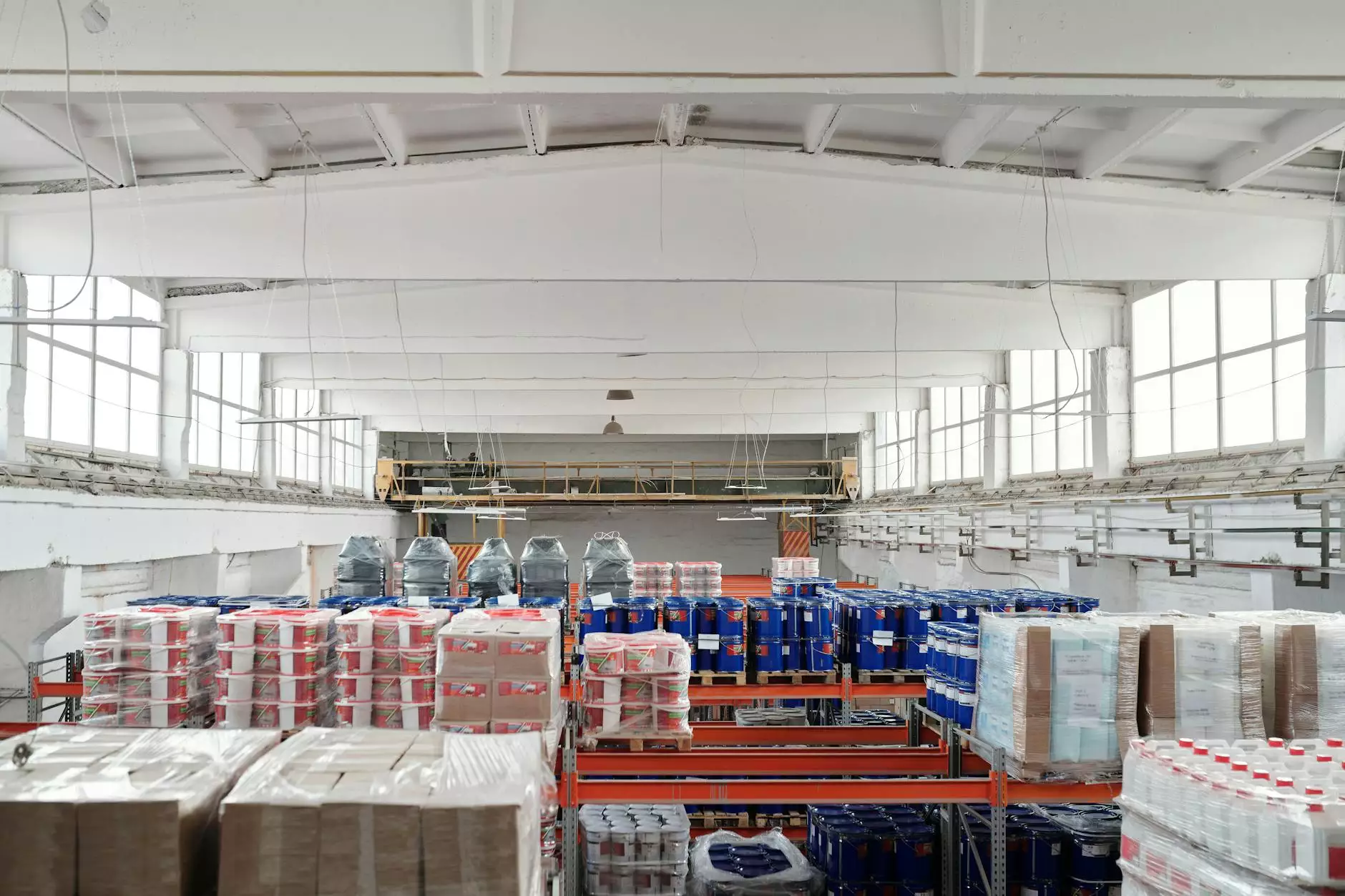Transform Your Business with IQF Machines: A Comprehensive Guide

The food industry is always evolving, and staying ahead of the competition requires embracing advanced technologies. One such innovation is the IQF machine, widely recognized for its ability to preserve the quality and freshness of food products. Understanding the significance of this technology is vital for businesses in the refrigeration equipment segment, especially for those committed to providing quality within a competitive market.
What is an IQF Machine?
IQF stands for Individually Quick Frozen. As the name suggests, this method involves rapidly freezing individual food items, as opposed to bulk freezing. The primary aim is to maintain the texture, flavor, and nutritional value of food while extending its shelf life. This is achieved through specialized freezing equipment designed to optimize airflow and provide consistent temperature control.
The Importance of Individually Quick Freezing
In the food industry, the preservation of quality is non-negotiable. Here are several reasons why investing in an IQF machine can be a game changer for your business:
- Enhanced Quality: IQF technology ensures that each item maintains its original taste, color, and texture.
- Extended Shelf Life: Individually quick freezing allows products to be stored for longer periods without degradation.
- Reduced Waste: Foods can be thawed as needed, reducing spoilage and waste in inventory.
- Improved Customer Satisfaction: High-quality frozen products lead to happier customers and repeat business.
- Versatility: IQF can be applied to a variety of food items including fruits, vegetables, seafood, and meats.
How Does an IQF Machine Work?
The workings of an IQF machine revolve around precise refrigeration technology. The process typically involves the following key steps:
1. Pre-processing
Before freezing, food items undergo necessary pre-processing, such as washing, cutting, or blanching. This step is crucial for both cleanliness and optimal freezing.
2. Loading
Items are then loaded onto the IQF conveyor belt in a single layer, ensuring each piece is exposed to dedicated airflow for uniform freezing.
3. Freezing Phase
Air is circulated rapidly around the food items at incredibly low temperatures, which allows for the immediate freezing of individual pieces. This stage is critical as it helps to prevent the formation of large ice crystals that can damage cell structures, thus preserving texture.
4. Packaging
Once frozen, items are discharged from the machine and immediately packaged to protect them from air exposure, thereby extending their usability.
Types of IQF Machines Available
The IQF market offers a variety of machines tailored to different food types and production capacities. Here are some common types:
- Batch IQF Freezers: Suitable for smaller operations, these machines freeze food in batches and are cost-effective for businesses with lower volume needs.
- Continuous IQF Freezers: Ideal for larger scale operations, these machines provide high throughput and are suitable for mass production.
- Cryogenic IQF Freezers: These utilize liquid nitrogen or carbon dioxide for ultra-fast freezing processes, effectively sealing in the quality of delicate food items.
Benefits of Implementing IQF Technology in Your Business
Integrating an IQF machine into your refrigeration operations brings numerous benefits, as highlighted below:
1. Cost Efficiency
Although the initial investment in an IQF system might seem significant, the long-term savings from reduced food waste and spoilage can be substantial. Businesses can recoup their investment through improved operational efficiency and profitability.
2. Increased Market Competitiveness
With the growing demand for high-quality frozen food products, the ability to offer superior quality can set your brand apart. Consumers are increasingly aware of the benefits of IQF technology, and having this capability can enhance your market presence.
3. Sustainability
Adopting IQF technology can also contribute to sustainability goals. By minimizing food waste and conserving resources, businesses can align with eco-friendly practices, which are increasingly important to consumers.
Challenges and Considerations for IQF Implementation
While the benefits are numerous, transitioning to an IQF system requires careful planning and consideration. Here are some potential challenges:
- Initial Costs: The upfront costs of purchasing and installing an IQF machine can be high; however, financing options may be available.
- Training: Workers will require training to operate the machinery effectively and to understand best practices for food safety and quality control.
- Space Requirements: IQF machines may require significant space within your facility, so planning for adequate installation space is crucial.
Case Studies: Successful IQF Implementations
Numerous businesses across the globe have successfully integrated IQF technology, leading to significant improvements in operational efficiency and quality. Here are a couple of notable examples:
Dairy Products Manufacturer
A leading dairy products company adopted IQF technology to freeze individual cheese portions. As a result, they reduced waste by 40% and increased sales by 25%, thanks to the superior quality of their frozen offerings.
Frozen Vegetable Producer
By investing in an IQF machine, a small frozen vegetable producer managed to enhance product consistency and reduce production time by 30%. Their customer base expanded significantly as users appreciated the excellent texture and taste of their products.
Choosing the Right IQF Machine for Your Business
When selecting an IQF machine, it’s essential to keep several factors in mind to ensure you make the best decision for your operation:
- Production Capacity: Determine the volume of products you intend to freeze. This will dictate whether you need a batch or continuous IQF machine.
- Type of Food: Different food items may require specific machinery, especially if you deal with delicate fruits or seafood.
- Budget: Assess your financial capacity. Don’t forget to consider the long-term savings and ROI as well.
- Manufacturer Support: Choose a reliable manufacturer who can provide assistance with installation, training, and maintenance.
Conclusion: Why Your Business Should Invest in an IQF Machine Today
In the competitive landscape of the food industry, innovation is paramount. Investing in an IQF machine can significantly enhance your operational efficiency, preserve the quality of your products, and secure your position in the market. The benefits of adopting this advanced freezing technology—such as improved product quality, reduced waste, and increased customer satisfaction—make it a sound investment for any business in the refrigeration equipment sector.
Take advantage of the opportunities presented by IQF machines and elevate your business to new heights. For more information on selecting the right IQF machine for your operation, feel free to contact us at First Cold Chain, your trusted partner in state-of-the-art refrigeration solutions.









